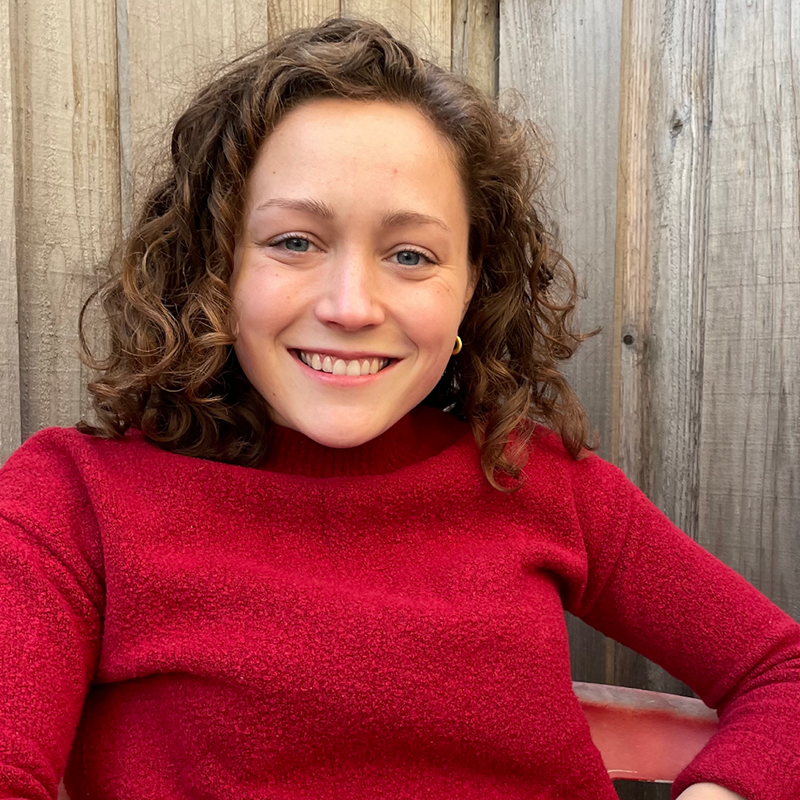CSpotlight: A love of interdisciplinary research

Suzie Hoops' journey has been inspired by her advisor Dan Knights. Through a data science internship for his industry start-up and then as a staff researcher in his UMN lab, she has built an impressive resume even before grad school. Thanks to these experiences, she's now confident combining her varied interests in linear algebra, machine learning, and biology as a Ph.D. candidate.
Tell us about your experience working with Professor Dan Knights before you started your Ph.D. program.
I first met my advisor, Dr. Dan Knights, through a data science internship with a microbiome analysis start-up called CoreBiome (now Diversigen). Dr. Knights and two other colleagues from the University of Minnesota (Dr. Kenny Beckman and Dr. Daryl Gohl) started CoreBiome in 2017. I was one of their first three employees (along with two other interns) so I got to work closely with Dr. Knights and eventually applied to join his lab at the University of Minnesota as a staff researcher.
What made you decide to pursue your Ph.D. at the University of Minnesota?
I loved that the University allowed Dr. Knights to pursue industry beyond his academic pursuits, and knew it would be the best place to foster my creativity as I started my early career. My staff position with Knights Lab was the perfect opportunity because I got practical research experience for two years. This experience only solidified my decision to pursue a Ph.D. in computer science at the University of Minnesota.
I would like to emphasize the fact that I didn’t start my Ph.D. program until three years after completing my undergraduate degree, and I know I am definitely not alone in waiting to start grad school! Being able to spend a few years exploring my interests has made me more confident and successful than I believe I would have been if I had started while still uncertain about my career direction. Do what is best for you, and know there will almost assuredly be others taking a similar path!
How did you become interested in computer science?
I had my first brush with computer science in an undergraduate course during the spring of my second year at St. Olaf College (where I earned my Bachelor of Arts in Mathematics). I loved the problem-solving nature of coding-based courses and computer science theory. While I completed my undergraduate studies in math, I made a point to take as many computational courses as possible and incorporated computation into my research projects as I quickly learned it was my best, most fun tool in exploring any subject.
What inspired your current research topic?
My research explores dimensionality reduction techniques of highly complex and variable data, particularly focusing on applications in studies of the human gut microbiome. The topic really stems from my love of interdisciplinary studies. This work is the perfect stew of linear algebra, machine learning, and biology, with the rewarding outcome of impacting human health through improving how we conduct human microbiome studies. What more could a scientist ask for?
What advice do you have for incoming computer science students?
A degree in computer science is about so much more than becoming a better coder. Computer science is at the core of the modern world, meaning it has the power to make real, impactful changes. Getting to know your peers and professors, practicing creative problem-solving in real-world scenarios, and keeping the big picture of your schoolwork in mind will make you a better computer scientist and a better person.
What are your plans after graduation?
I am not planning to graduate until the spring or summer of 2025, so I have plenty of time to think about this! At this point, however, I would love to join a government research lab, such as those conducted by the Department of Energy, as a Senior Data Scientist.